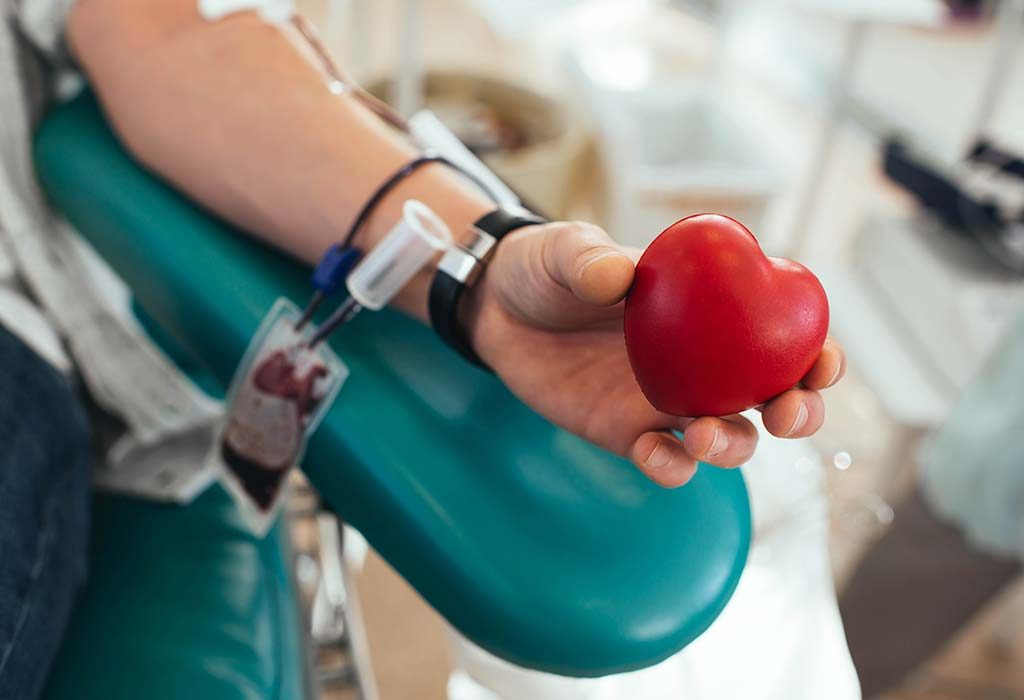In this Article
Donating blood is a small gesture that can have a monumental impact on the lives of several people. If you are a blood donor or are thinking of becoming one, this World Blood Donor Day, learn all about the importance and objectives of donating blood.
When is World Blood Donor Day Celebrated?
World Blood Donor Day is celebrated on June 14th. It was established as one of the eight global health public campaigns by WHO (World Health Organisation) in 2004. This day promotes the maintenance of hygiene and special care of blood-related medical activities.
Objectives of World Blood Donor Day
The idea of celebrating such a day arises purely out of the immense gratitude that we extend as a whole, towards the global voluntary community. Individuals who go out of their way to save a life with their merciful act of blood donation are no less than any martyr. This day honours the warriors of one of the toughest wars waged by mankind.

- Extending gratefulness across the planet towards voluntary blood donors.
- Spreading awareness about blood-related disorders, through the massive outreach of WHO.
- Spreading awareness regarding the urgency of blood donation.
- Outlining the importance of healthy blood donation habits.
- Highlighting the requirement of disease-free blood for a healthy future.
Benefits of Blood Donation
Blood donation is not just about saving lives and helping humanity take a step forward with better health. This is also about you and the benefits you receive, merely out of the genuine act of donation. Here are the health benefits of donating blood that you didn’t know you could enjoy:
1. Health Check-Ups All the Way!
Did you know that every time you head out for blood donation, you get auto-enrolled for a health check-up? Well, this is to primarily monitor that the donor is healthy and capable of blood donation. However, it does reap the benefit of a free health check-up every once in a while, if you are a regular blood donor. It also allows one to identify any major potential health risks or the possibility of any blood-disorder.

2. Shell Out the Iron Reserves
It is known that donating blood can be a healthy and safe way to get rid of the excess store of iron. A disorder known as Hemochromatosis is caused due to an excess of iron in the body. Though the condition is rare, who could have thought, that a simple act of kindness could alleviate serious health issues?
3. Save Our Souls from Cancer
Research found that many cancer patients have comparatively higher levels of iron than others. Regular blood donation can monitor and improve health levels by drastic margins and it is only a matter of time before you may achieve excellent health.

4. Cardiac Arrests No More
Excess iron in the blood can immediately cause blood vessels to constrict. These constrictions then lead to cardiovascular health conditions and possible cardiac arrests. Therefore, a reduction in iron levels could do no harm. Go for it! Do yourself a favour and donate some healthy blood for a healthier life.
5. A Happy World Makes a Happy Mind
Just like pain and misery can induce psychosomatic disorders like asthma, an act of kindness and a selfless deed induces joy and satisfaction, which thereby create a great psychological environment. Peace and harmony dwell in the hearts of voluntary donors who bear in mind that they are making the world a better place to live in.

Are There Disadvantages of Donating Blood?
Blood donation certainly has more advantages over disadvantages. However, just like any coin has two sides to it, the disadvantages of blood donation can’t be neglected and must be borne in mind, when preparing oneself mentally to become a donor. It is essential to point out here, though, that these drawbacks are minor and certainly manageable over a period of time. These are as follows:
1. Prick of a Needle
You are bound to face the prick of a needle as the doctor inserts the blood drawing instrument into your arm. This prick is minute and lasts only for a second. However, if you’ve never taken injections before, it could be a bit startling.
2. Incessant Bleeding
Once you have donated blood and all the medical gear has been removed, you must note that there is no continued bleeding from the concerned area. It might bleed for a while, which can be taken care of by folding your arm or indirectly applying pressure to the area. If the bleeding continues, though, this must not be neglected. Consult your medical care unit immediately.
3. Nauseous Experience
For a few donors, this experience may be nauseating. Sudden loss of blood may lead to this feeling, but it is only temporary and can be easily dealt with.
4. Dizzy and Tired Feeling
Despite there being medical laws in place for drawing only a specific amount of blood from any donor, it is difficult to predict how each person’s body will react, post donation, even with optimal measures taken. Therefore, some may feel tremendously dizzy and tired, as a significant amount of blood leaves the body.
5. Tiny Scar
If you despise scars, you must note that there will arise a temporary scar on your arm, in the area where the needle is pierced. This is not worrisome and will fade away with time, once your body has dealt with the impact.

FAQs
Here are some common questions that pop up when people opt for blood donation the first time.
1. How Often Can I Donate Blood?
A minimum of two months, or in other words, eight weeks is the recommended pause between two whole blood donation activities. The body must be given optimum time to recover from one donation and remain healthy enough for the upcoming donation.
2. How Much Blood Can I Donate?
About 8% of the volume of an average adult’s blood content is considered optimum for donation at once. This is generally about 470ml. However, it also largely depends on your medical parameters and history, to determine the appropriate volume that you can donate.
3. Who is Eligible for Donating Blood?
One must be at least 18 years of age to donate blood and be in good health. People diseased with AIDS, Syphilis, Hepatitis A-B, etc., are strictly disallowed from the donation. These can be detected through nucleic acid testing. The minimum weight one must carry to be a healthy donor is about 45-50 kilograms. It is preferable to have normal levels of sugar, blood pressure, pulse rate, and body temperature to be a successful donor.
On the occasion of World Blood Donor Day, we wish you a very happy experience and earnestly hope that this article spreads great awareness amongst all responsible citizens of the planet, towards humanity.









